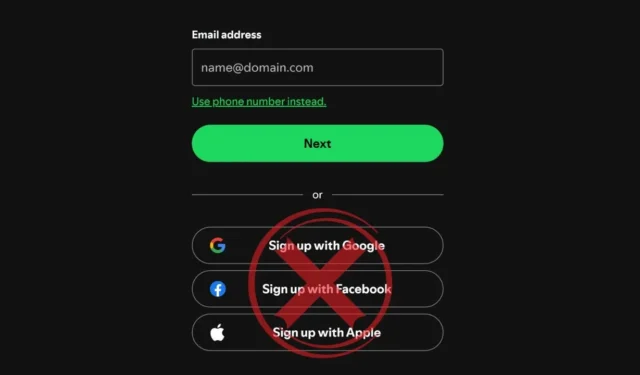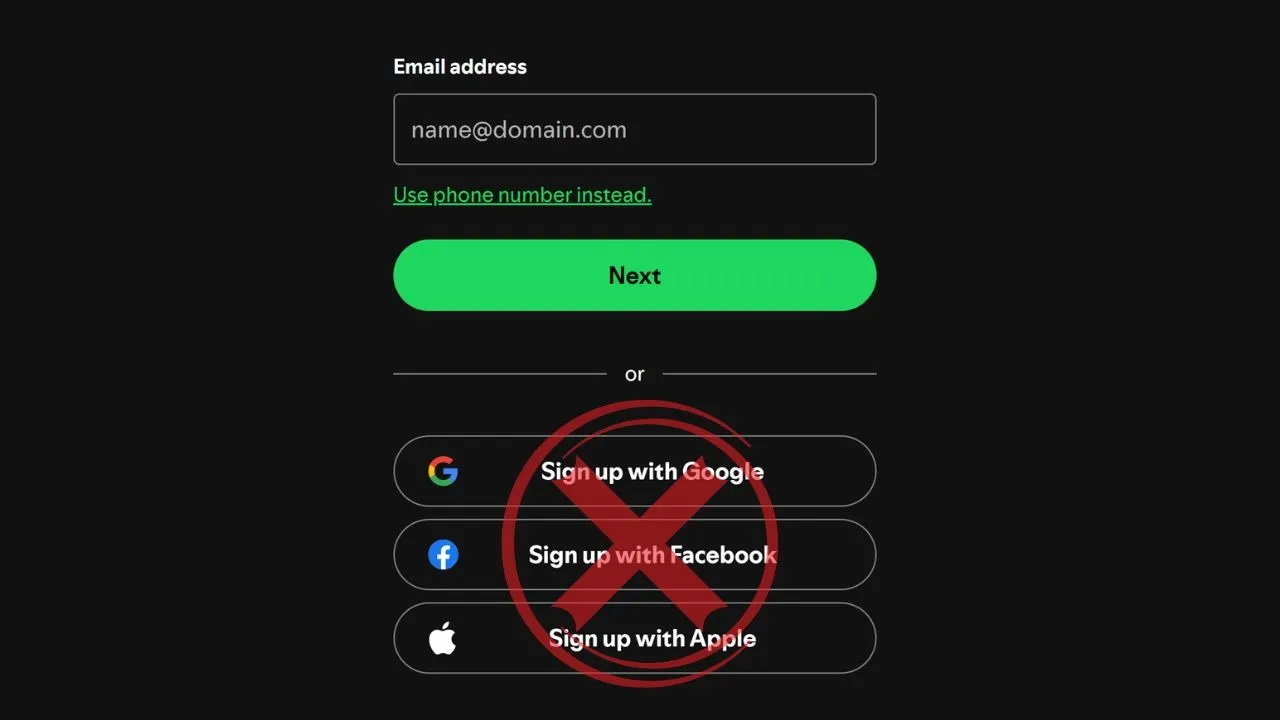Top 5 Reasons to Avoid Signing In with Google or Facebook


Have you ever felt drawn to the familiar convenience of “Sign in with Google” or “Sign in with Facebook”? These options provide a quick gateway to multiple websites. However, is this convenience worth the potential risks? Numerous tech professionals express caution regarding the use of Google or Facebook for logging into various sites. Personally, I believe in maintaining a clear separation between my online identity and my Google and Facebook accounts.
Understanding the Process of Signing In with Google or Facebook
By signing in with Google or Facebook, you utilize what is known as Single Sign-On (SSO). This system allows you to use a single set of login credentials across numerous platforms, making it unnecessary to remember separate usernames and passwords for each service. When you click “Continue with Google” or “Continue with Facebook,” you’re authorizing these platforms to verify your identity and share certain details with the app or website you are trying to access.
In instances where you establish an account on a third-party service via SSO instead of a conventional username and password, Google or Facebook issues a unique token. This token functions as a digital key, permitting you entry to the service without the need to re-enter your credentials. Provided you remain logged into your Google or Facebook account, you can effortlessly utilize any linked services thanks to this token.
While SSO streamlines logging into various sites with one set of credentials, it also comes with certain disadvantages:
1. Over-reliance on Sign-In Options
In December 2020, Google faced a significant global outage that blocked users from accessing its services. As a tech news blogger, I tried to create graphics for an article discussing this event using Canva, but was unable to log into my Canva account since I had linked it through Google Login.

This experience significantly influenced my resolve to stop using Google and Facebook for sign-ins. Global outages are not rare for major tech entities like Google and Facebook, and such disruptions can adversely affect users.
2. Risks of Data Sharing
Using “Sign in with Google” or “Sign in with Facebook” means you are effectively allowing these platforms to access and disseminate your personal information with the services you are using. This includes a variety of data such as your name, email, photos, and friends list—often without your full awareness.

For example, a travel website connected to Facebook might gain access to your friends list for insights and experiences. Likewise, e-commerce sites or ride-sharing apps connected with Google can potentially utilize your Google Wallet information to simplify payments.
Organizations risk unintentionally sharing sensitive information when staff utilize their official Google or Facebook accounts to sign in across various platforms, which may expose confidential data such as calendars, task lists, and contacts.
3. Vulnerability to Data Breaches
When relying on “Sign in with Google” or “Sign in with Facebook,” the security of your accounts is tied directly to the security measures of these overarching platforms, which are outside your control. If your Google or Facebook account falls victim to a breach, hackers could potentially infiltrate other linked services.

Utilizing these sign-in options carries similar risks to using identical credentials across multiple platforms—it’s akin to putting all your eggs in one basket. A breach of your Google or Facebook account could lead to compromised access across every associated service.
Social media accounts are often prime targets for cybercriminals. Many users may have received alerts from friends about compromised accounts and odd messages. If your Facebook or Google account is hacked, attackers frequently examine the connected apps in your settings, knowing those linked accounts are also vulnerable.
For improved online security, considering the avoidance of SSO services is wise. Instead, focusing on creating robust, unique passwords for each of your accounts is more secure.
4. Monitoring and Profiling
Google and Facebook might gather your information from third-party applications and websites that you access using their sign-in features. They employ sophisticated tracking measures to analyze your online activities. These techniques can record your interactions with various services, including the pages you visit, the content you access, and the actions you perform.

Through this data, Google and Facebook may generate extensive profiles regarding your preferences, demographics, and interests. Such profiles might outline your age, gender, location, hobbies, and shopping behaviors.
This data can be shared with advertisers who will target you with advertisements tailored to your interests, raising the chances that you will engage with or purchase their offerings.
5. Limited Control Over Your Online Identity
When you use “Sign in with Google” or “Sign in with Facebook” to establish an account on a third-party service, your profile information is usually automatically pulled from your Google or Facebook account. This often reduces your ability to personalize your profile on that platform.

Your profile data can be synced with your Google or Facebook account, giving you limited options to adjust your username, profile picture, and other personal details on the platform you are using.
This may be frustrating for individuals aiming to customize their online presence across various services. For more personalization, you may want to consider signing up using a traditional password instead.
Are you weary of constant prompts to sign in with Google? You can easily disable the “Sign in With Google”feature on websites. If you seek a reliable password manager, discover why KeePass is a favored option for safeguarding your digital presence.
Image by Yash Patel.


Leave a Reply